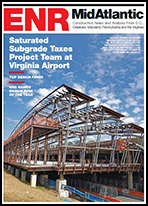Construction employment declined in 111 out of 337 metropolitan areas between January 2011 and January 2012, increased in 169 and stayed level in 57, according to new analysis of federal employment data recently released by the Associated General Contractors of America. The new construction employment data comes out amid growing concerns within the business community about Washington’s failure to enact a number of long-term infrastructure measures.
“The mixed construction employment results reflect the conflict between slowly rebounding private sector demand for construction and declining public sector investments,” said Ken Simonson, the association’s chief economist. “For every metro area that is adding construction jobs, there is another one where construction employment continues to fall or is stagnant.”
The largest job losses were in Tampa-St. Petersburg-Clearwater, Fla. (-7,100 jobs, -14%), followed by Chicago-Joliet-Naperville, Ill. (-5,200 jobs, -5%); Fort Lauderdale-Pompano Beach-Deerfield Beach, Fla. (-3,400 jobs, -11%) and New Orleans-Metairie-Kenner, La. (-3,300 jobs, -11%). Springfield, Mass.-Conn. (-23%, -1,800 jobs) lost the highest percentage. Other areas experiencing large percentage declines in construction employment included Anniston-Oxford, Ala. (-20%, -200 jobs) and Oshkosh-Neenah, Wis. (-19%, -600 jobs).
Atlantic City-Hammonton, N.J., added the highest percentage of new construction jobs (45%, 1,700 jobs) followed by Bakersfield-Delano, Calif. (31%, 4,000 jobs). Portland-Vancouver-Hillsboro, Ore.-Wash. added the most jobs (5,300 jobs, 13%). Other areas adding a large number of jobs included Denver-Aurora-Broomfield, Colo. (5,000 jobs, 8%); Atlanta-Sandy Springs-Marietta, Ga. (5,000 jobs, 6%); Indianapolis-Carmel, Ind. (4,600 jobs, 14%) and Bakersfield-Delano, Calif.
Association officials said that the relatively mixed construction employment numbers would have been much better if Washington wasn’t years late in passing a number of key infrastructure measures to fund highway, transit, water and utility maintenance and upgrades. They noted that hundreds of contractors gathered in Washington, D.C. on March 20 to push for action of highway and transit legislation as part of the “Rally for Roads,” for example.


Post a comment to this article
Report Abusive Comment